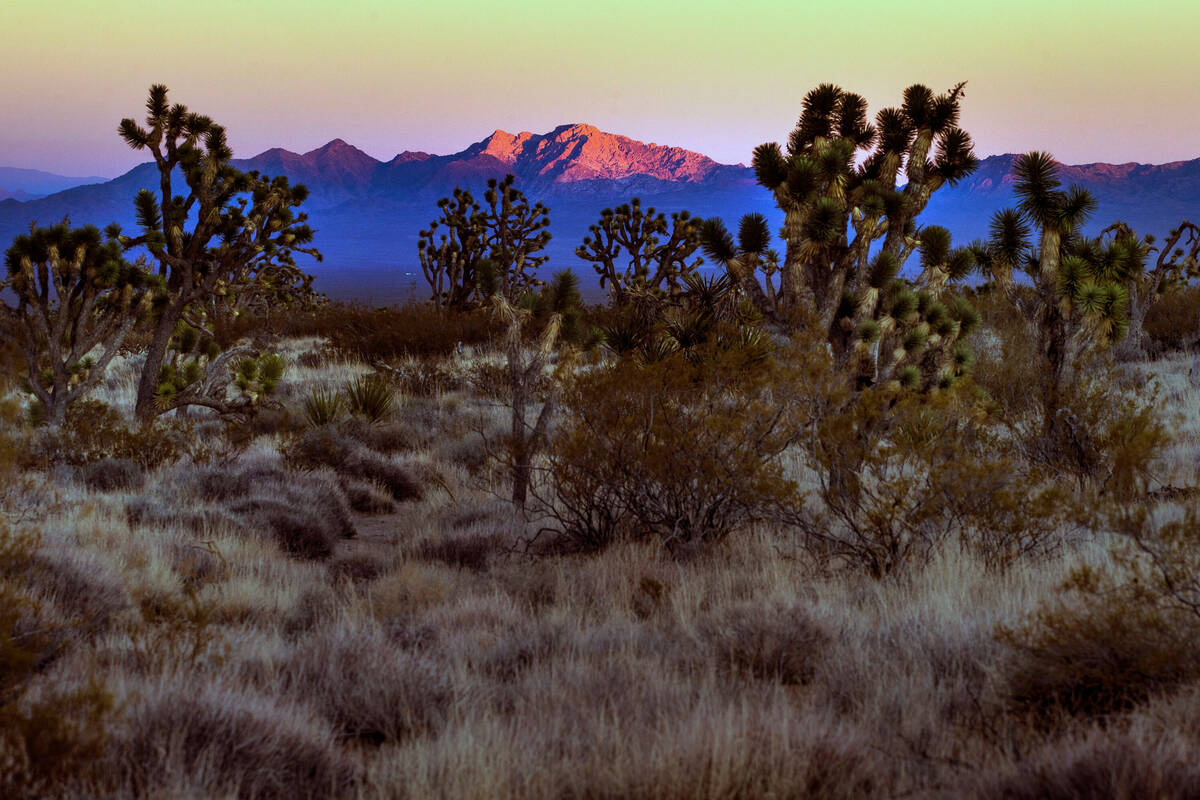Amodei takes aim at president’s authority to establish national monuments
A federal bill filed on Thursday takes aim at the president’s longstanding authority to designate national monuments.
The Ending Presidential Overreach on Public Lands Act, sponsored by Reps. Mark Amodei, R-Nev., and Celeste Maloy, R-Utah, would require the president to obtain the consent of Congress before establishing a national monument. It would amend the Antiquities Act of 1906, the law that grants the president wide latitude to prevent public land from being developed.
Last month, Amodei, who represents Northern Nevada, told the Las Vegas Review-Journal that he didn’t “want to see the Antiquities Act weaponized depending on who’s in the White House.”
“My home state of Nevada, along with other Western states, has long been burned by executive actions on public lands,” Amodei said in a statement Thursday. “I am a firm believer that the best lands policy is generated by the local communities who actually live off of these lands, not Washington bureaucrats.”
Biden conserved ‘more lands and waters than any President in history’
President Joe Biden, who will leave office this month, used the act to designate Avi Kwa Ame in Southern Nevada, a more than 500,000-acre site considered holy to Yuman-speaking Native American tribes. He added two more national monuments in California this week, Chuckwalla National Monument and the Sáttítla Highlands National Monument.
The White House said in an announcement on Thursday that Biden has conserved “more lands and waters than any President in history.”
Republicans, including incoming President-elect Donald Trump, have criticized the Antiquities Act, causing some to worry whether his administration would again review designations made under previous presidents. Project 2025, a conservative blueprint that many have associated with a second Trump presidency, calls for such a review to take place again.
“Congress trusted Presidents with a narrow authority to declare national monuments in the Antiquities Act,” Maloy, the Republican congresswoman from Utah, said in a Thursday statement. “Unfortunately, Presidents have continued to abuse that narrow authority to designate millions of acres of land in Utah and across the West without proper Congressional oversight.”
Conservationists in the West have long looked to the Antiquities Act as a lifeline to protect lands that are sacred to Native Americans or are ecologically sensitive.
In a statement, Native Voters Alliance Nevada government relations director Mathilda Miller labeled the legislation “a shameless betrayal of the people of Nevada and the West.”
She pointed to the wide support from community members that Avi Kwa Ame garnered before Biden designated it.
“This bill is a direct attack on Tribal sovereignty, cultural preservation and the values that define who we are as a nation,” Miller said. “We demand that Congress reject this shameful attack on public lands. The Antiquities Act is not just a policy— it’s a promise to protect our shared history, uphold Tribal sovereignty and preserve the places that define who we are.”
“That promise will not be broken — not on our watch,” she added.
Contact Alan Halaly at ahalaly@reviewjournal.com. Follow @AlanHalaly on X. Review-Journal staff writer Jessica Hill contributed to this report.

















